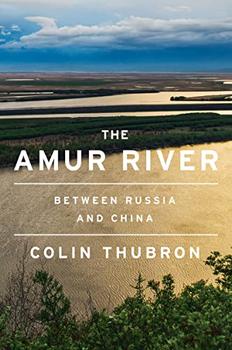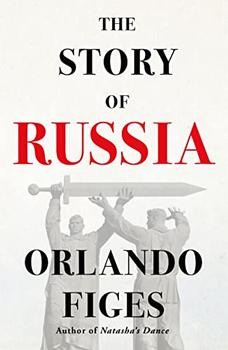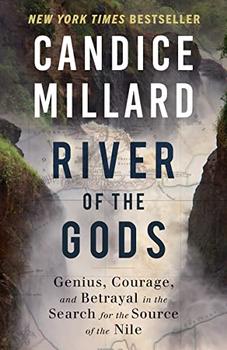Summary | Excerpt | Reviews | Beyond the book | Read-Alikes | Genres & Themes | Author Bio

Between Russia and China
by Colin ThubronThe most admired travel writer of our time - author of Shadow of the Silk Road and To a Mountain in Tibet - recounts an eye-opening, often perilous journey along a little known Far East Asian river that for over a thousand miles forms the highly contested border between Russia and China.
The Amur River is almost unknown. Yet it is the tenth longest river in the world, rising in the Mongolian mountains and flowing through Siberia to the Pacific. For 1,100 miles it forms the tense border between Russia and China. Simmering with the memory of land-grabs and unequal treaties, this is the most densely fortified frontier on earth.
In his eightieth year, Colin Thubron takes a dramatic journey from the Amur's secret source to its giant mouth, covering almost 3,000 miles. Harassed by injury and by arrest from the local police, he makes his way along both the Russian and Chinese shores, starting out by Mongolian horse, then hitchhiking, sailing on poacher's sloops or travelling the Trans-Siberian Express. Having revived his Russian and Mandarin, he talks to everyone he meets, from Chinese traders to Russian fishermen, from monks to indigenous peoples. By the time he reaches the river's desolate end, where Russia's nineteenth-century imperial dream petered out, a whole, pivotal world has come alive.
The Amur River is a shining masterpiece by the acknowledged laureate of travel writing, an urgent lesson in history and the culmination of an astonishing career.
The Amur River is a poignant contribution to Thubron's acclaimed career, with his trademark lyricism elevating nature to a central, breathing character that often reflects the ambivalence of its human counterparts. Two minor quibbles are the lack of historical citations and photographs; with as much history as Thubron packs in, a bibliography is essential, as are visual aids for a travel book. Despite this curious oversight, the book will please armchair travelers and longtime fans of Thubron's work alike...continued
Full Review
(764 words)
This review is available to non-members for a limited time. For full access,
become a member today.
(Reviewed by Peggy Kurkowski).
 In The Amur River: Between Russia and China, Colin Thubron engages with people from a variety of cultural backgrounds. One of these individuals is Alexei, an Amur Cossack who proudly meets the author decked out in his ceremonial uniform, yelling exuberantly "the Cossacks are coming back!" But who are the Cossacks?
In The Amur River: Between Russia and China, Colin Thubron engages with people from a variety of cultural backgrounds. One of these individuals is Alexei, an Amur Cossack who proudly meets the author decked out in his ceremonial uniform, yelling exuberantly "the Cossacks are coming back!" But who are the Cossacks?
First, the term "Cossack." Traditionally, they are a member of one of the autonomous communities drawn from various ethnic and linguistic groups (such as Slavs, Tatars and Circassians) that formed in Ukraine, southern Russia, the Caucasus Mountains and Siberia beginning in the 15th century and that were completely incorporated into czarist Russia during the 18th and 19th centuries.
The word "Cossack" is Turkic in origin ...
This "beyond the book" feature is available to non-members for a limited time. Join today for full access.

If you liked The Amur River, try these:

by Orlando Figes
Published 2023
From "the great storyteller of Russian history" (Financial Times), a brilliant account of the national mythologies and imperial ideologies that have shaped Russia's past and politics - essential reading for understanding the country today.

by Candice Millard
Published 2023
The harrowing story of one of the great feats of exploration of all time and its complicated legacy - from the New York Times bestselling author of River of Doubt and Destiny of the Republic.
We should have a great fewer disputes in the world if words were taken for what they are
Click Here to find out who said this, as well as discovering other famous literary quotes!